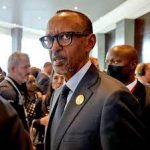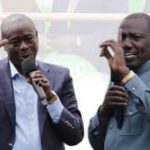Nearly 34 years after its inception, Hezbollah, a Lebanese Shiite militant group, has publicly admitted that it is fully receiving its money and arms from the Iranian government.
Hassan Nasrallah, the leader of Hezbollah, ridiculed the recent U.S. sanctions targeting Hezbollah. His speech was broadcast by the Al-Manar, the Shiite party’s TV station, which is funded by the Iranian government. Nasrallah said that the U.S. sanctions would have no impact on the organization, as his group already obtains complete financial and weaponry assistance from the Islamic Republic of Iran.
The Shiite leader pointed out that “We do not have any business projects or investments via banks…” He added that Hezbollah’s survival depends on Iran: “We are open about the fact that Hezbollah’s budget, its income, its expenses, everything it eats and drinks, its weapons and rockets, come from the Islamic Republic of Iran,” he said, and pressed the notion that his group “will not be affected” by any type of sanctions.
Nasrallah’s recent speech was also part of a ceremony that marked 40 days after the death of a high level Hezbollah commander, Mustafah Bedreddine, in the Syrian capital of Damascus. Nasrallah has recently vowed to increase Hezbollah’s military presence in Syria, and assist Bashar Al Assad’s forces, although Hezbollah has suffered significant losses in the latest fighting in Aleppo, Syria.
Nasrallah stated on Al Manar television:
“We are facing a new wave… of projects in our war against Syria. They are being waged in northern Syria, particularly in the Aleppo region… The defense of Aleppo is the defense of the rest of Syria, it is the defense of Damascus, it is also the defense of Lebanon, and of Iraq….We will increase our presence in Aleppo. Retreat is not permissible.”
Iran maintains that Hezbollah is a legitimate social, political and religious organization. Iran fostered the birth of Hezbollah and transformed it into one of its militant proxies in the region. Iran also helped Hezbollah become part of Lebanon’s political system.

Hezbollah leader Hassan Nasrallah (left) hugs and kisses Iran’s Supreme Leader, Ayatollah Ali Khamenei. |
The United States and several other countries, including Canada, France, Australia, the Netherlands, and even the Arab League and the Gulf Cooperation Council (GCC), have long listed Hezbollah as a global terrorist group.
Hezbollah has been accused of terrorist attacks, including the 1983 bombing of the U.S. Marines barracks in Beirut, in which 241 U.S. Marines were killed, the 1983 U.S. Embassy bombing in Beirut; the 2009 Hezbollah plot in Egypt; the 1984 United States Embassy annex bombing in Beirut; the 2012 bus bombing in Burgas, Bulgaria, as well as the 9/11 attacks in the United States, in which federal courts ordered Iran to pay $7.5 billion to the victims’ families. Hezbollah and Iran were also reportedly behind the 1992 attack on Israel’s Embassy in Buenos Aires in which 29 were killed.
U.S. President Barack Obama gave hope that the nuclear agreement (which is still unsigned by Iran), the lifting of sanctions against Iran, and engagement with Tehran will possibly help to change Iran’s behavior towards the moderates in Iran, and diminish Iran’s antagonistic, anti-Semitic stance towards Israel. He pointed out that as a result of the nuclear agreement,
“Iran being able to recognize that what’s happening in Syria for example is leading to extremism that threatens their own state and not just the United States; that some convergence of interests begins to lead to conversations between, for example, Saudi Arabia and Iran; that Iran starts making different decisions that are less offensive to its neighbors; that it tones down the rhetoric in terms of its virulent opposition to Israel. And, you know, that’s something that we should welcome.”
Instead, the rhetoric of Iran’s Supreme Leader, Ayatollah Ali Khamenei and his proxy, Hezbollah, appear to have grown harsher against Israel and the US. As Nasrallah emphasized, “As long as Iran has money, we have money… Just as we receive the rockets that we use to threaten Israel, we are receiving our money. No law will prevent us from receiving it…”
In December 2015, the U.S. Congress voted to impose fresh sanctions on Hezbollah, through the Hezbollah International Financing Prevention Act, by targeting those banks that are “knowingly facilitating a significant transaction or transactions for” Hezbollah and those financial institutions that “knowingly facilitating a significant transaction or transactions of a person identified on the List of Specially Designated Nationals and Blocked persons.”
Nasrallah lashed out at the U.S.: “We totally reject this law until the Day of Judgment. … Even if the law is applied, we as a party and an organizational and jihadi movement, will not be hurt or affected.” He added: “We have no money in Lebanese banks, either in the past or now. … We don’t transfer our money through the Lebanese banking system.”
The Congressional bill does pose some minor challenges to Hezbollah’s financial logistics, but it will not prevent its military operations, terrorist attacks and expansion in any significant way — due to the Obama administration’s grand policy towards Iran and Hezbollah.
After the flimsy and uncompleted nuclear agreement, the Obama Administration immediately began transferring billions of dollars to Iran’s Central Bank. One of the payments included $1.7 billion transferred in January 2016. $1.4 billion of this sum came from American taxpayers.
Iran immediately increased its military budget by $1.5 billion from $15.6 billion to $17.1 billion.
Iran also began witnessing the flow of money due to the lifting of international sanctions.
The major primary beneficiaries of the sanctions relief and flow of money are Hezbollah and the Islamic Revolutionary Guards Corps (IRGC). Previously, when sanctions were imposed on Iran, Tehran had to reduce funding to Hezbollah and the its television station, Al-Manar, from approximately $200 million a year. However, thanks to President Obama and the continuing lifting of sanctions, the money that Iran is receiving from the U.S., from international trade, and from increased oil sales is most likely being directed toward Hezbollah and IRGC, Iran’s major beneficiaries, which keep attempting to scuttle U.S. foreign policy objectives in the region.
Dr. Majid Rafizadeh, political scientists and Harvard University scholar is president of the International American Council on the Middle East. He can be reached at Dr.rafizadeh@post.harvard.edu

























